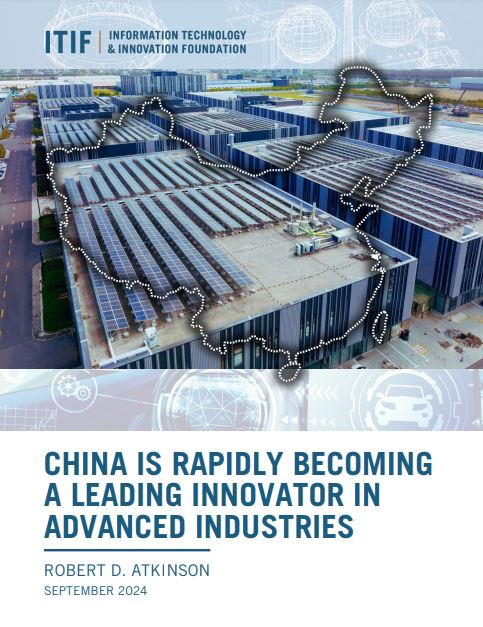
목차
Title page
Contents
KEY TAKEAWAYS 2
INTRODUCTION 5
WHY THIS MATTERS 6
THE NATURE OF INNOVATION INDUSTRIES AND COMPETITIVE POSITIONING 11
WHAT IS INNOVATION? 14
THE ASIAN TIGER PATH 15
CAN CHINA INNOVATE? 18
China Cannot Innovate 18
China Can Innovate 21
INNOVATION ANALYSIS 23
Empirical Data 26
Select Cases 41
Firm Analysis 43
Industry Analyses 43
Robotics 44
Chemicals 48
Nuclear Power 52
Semiconductors 54
Electric Vehicle and Battery Industries 57
Artificial Intelligence 59
Displays 61
Quantum Computing 62
Biopharmaceuticals 63
THE CONTRASTING WESTERN AND CHINESE ECONOMIC MODELS 65
China's Dream: Techno-Economic Leadership 65
American Neglect 68
Chinese and U.S. Economic Systems 70
Contrasting Innovation Policy Systems 74
The U.S. Innovation System 75
The Chinese Innovation System 79
Implications of the Chinese Innovation Model 91
America's Challenge: Ideological Divergence 93
Market Global Capitalism 93
Support Capitalism 96
Anticorporate Capitalism 97
Worker and Climate Capitalism 98
National Power Capitalism 100
A U.S. "10 S's" System 102
HOW CHINA MIGHT STALL 109
HOW THE UNITED STATES MIGHT NOT LOSE MORE 111
WHAT TO DO? 112
CONCLUSION 113
Scenario One: China as Innovation Leader 113
Scenario Two: Strategic Parity 114
Scenario Three: Japanification 115
ENDNOTES 116
Table 1. Hamilton Index industry leaders, 2020 7
Table 2. China's scores on select factors from the Global Innovation Index 41
Table 3. Summary of industry studies' results 44
Table 4. U.S. and Chinese economic systems 74
Figure 1. China's global market shares in advanced industries 6
Figure 2. Non-OECD change in global market shares (percentage-point difference, 1995-2020) 8
Figure 3. America's relative historical performance in Hamilton Index industries (LQ trends) 10
Figure 4. Hypothetical firm with fixed costs 40 times greater than marginal costs 11
Figure 5. Hamilton industry shares of the global economy 12
Figure 6. Number of researchers in China relative to number in the United States 26
Figure 7. China's researchers in the business sector as a share of total researchers, relative to the United States 27
Figure 8. China's gross domestic expenditure on R&D by sector, relative to the United States 28
Figure 9. R&D intensity in China by performing sector relative to the United States 29
Figure 10. Number of global top R&D investment firms in China relative to the United States 30
Figure 11. Number of science and technical articles published in China relative to the United States 31
Figure 12. Share of highly cited researchers in China relative to the United States 32
Figure 13. Number of top 100 universities in China relative to the United States 33
Figure 14. Gross VC investment in China relative to the United States 34
Figure 15. Number of PCT patent applications for China relative to the United States 35
Figure 16. Share of patent grants awarded to Chinese firms by USPTO 36
Figure 17. Value of IP licensing receipts by China relative to the United States 37
Figure 18. Number of WIPO global innovation clusters in China relative to the United States 38
Figure 19. Unicorns in the United States and China as a share of total unicorns in 2024 39
Figure 20. Share of supercomputers in the top 500 in China and the United States in 2024 39
Figure 21. Number of top 100 innovators in China relative to the United States 40
Figure 22. U.S. and Chinese firms' global market shares in machinery and equipment 51
Figure 23. The U.S. and Chinese innovation systems 79
Figure 24. Private investment as a share of GDP in China and the United States 105
해시태그
AI 100자 요약·번역서비스
인공지능이 자동으로 요약·번역한 내용입니다.
China is rapidly becoming a leading innovator in advanced industries
(첨단 산업 분야에서 혁신의 선두주자로 급부상하고 있는 중국)


